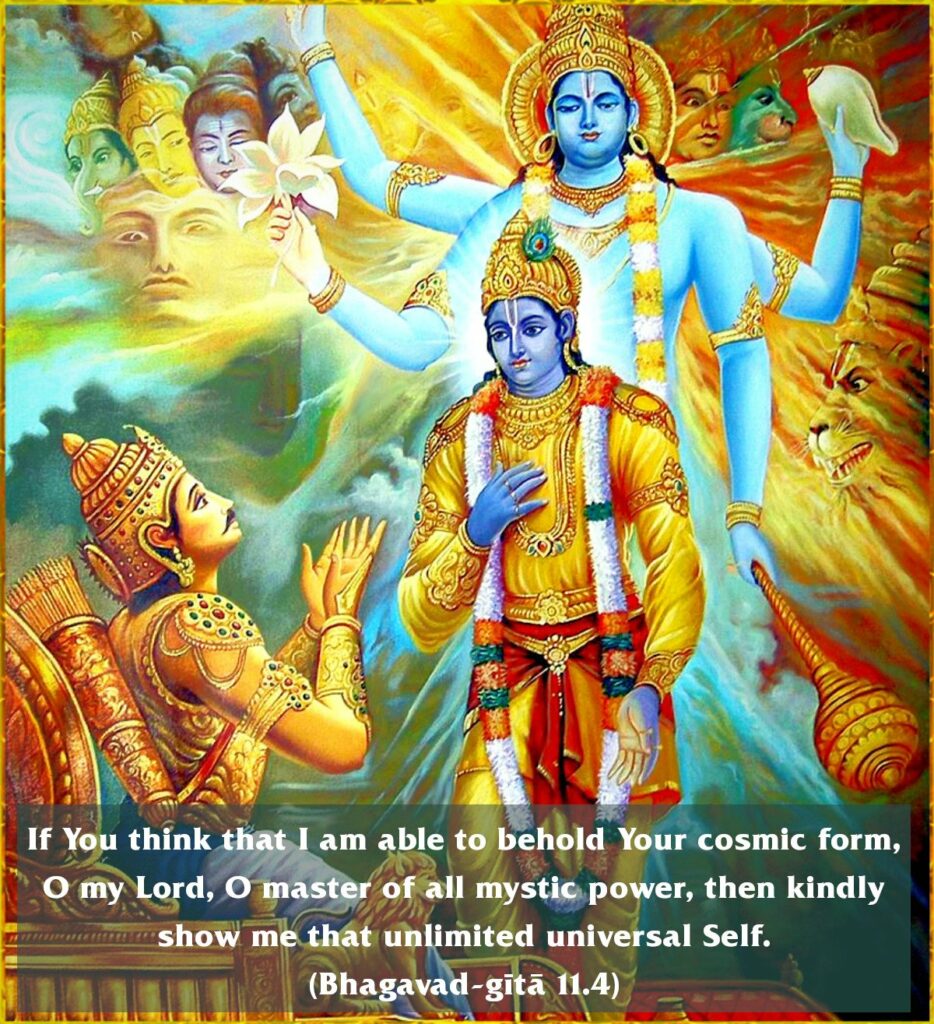मन्यसे यदि तच्छक्यं मया द्रष्टुमिति प्रभो |
योगेश्वर ततो मे त्वं दर्शयात्मानमव्ययम् || 4||
manyase yadi tach chhakyaṁ mayā draṣhṭum iti prabho
yogeśhvara tato me tvaṁ darśhayātmānam avyayam
manyase—you think; yadi—if; tat—that; śhakyam—possible; mayā—by me; draṣhṭum—to behold; iti—thus; prabho—Lord; yoga-īśhvara—Lord of all mystic powers; tataḥ—then; me—to me; tvam—you; darśhaya—reveal; ātmānam—yourself; avyayam—imperishable
Translation:
If, Ο Lord, You think me able to behold it, then, Ο Master of yogis, reveal to me Your immutable Self.
Commentary:
What we know here is the humility of Arjuna in appealing to the Lord to show His Cosmic Form, if it is possible for him to see it. Is he fit for it? Is he fit for seeing the vision? He did not demand it as a right, in the manner of a person who claims it as a reward of his devotion. Such humility is needed for every disciple in the presence of the Guru. He should leave it to the teacher to give him any experience which he thinks fit for the disciple. The disciple does not know what he is, what his powers are, and what he is fit for. The teacher knows it. So Arjuna appeals to the Lord to show him the Cosmic Form if the Lord thinks that he is fit to see it. Moreover, in the previous verse, Arjuna has declared his complete faith in the words of the Lord. He believes every word of the Lord when He described His infinite Glory. So faith and humility are the only means to win the Lord’s Grace.
Bhagavad Gita: Chapter 11 🔻 (55 Verses)
| 01 | 02 | 03 | 04 | 05 | 06 | 07 | 08 | 09 | 10 |
| 11 | 12 | 13 | 14 | 15 | 16 | 17 | 18 | 19 | 20 |
| 21 | 22 | 23 | 24 | 25 | 26 | 27 | 28 | 29 | 30 |
| 31 | 32 | 33 | 34 | 35 | 36 | 37 | 38 | 39 | 40 |
| 41 | 42 | 43 | 44 | 45 | 46 | 47 | 48 | 49 | 50 |
| 51 | 52 | 53 | 54 | 55 |
